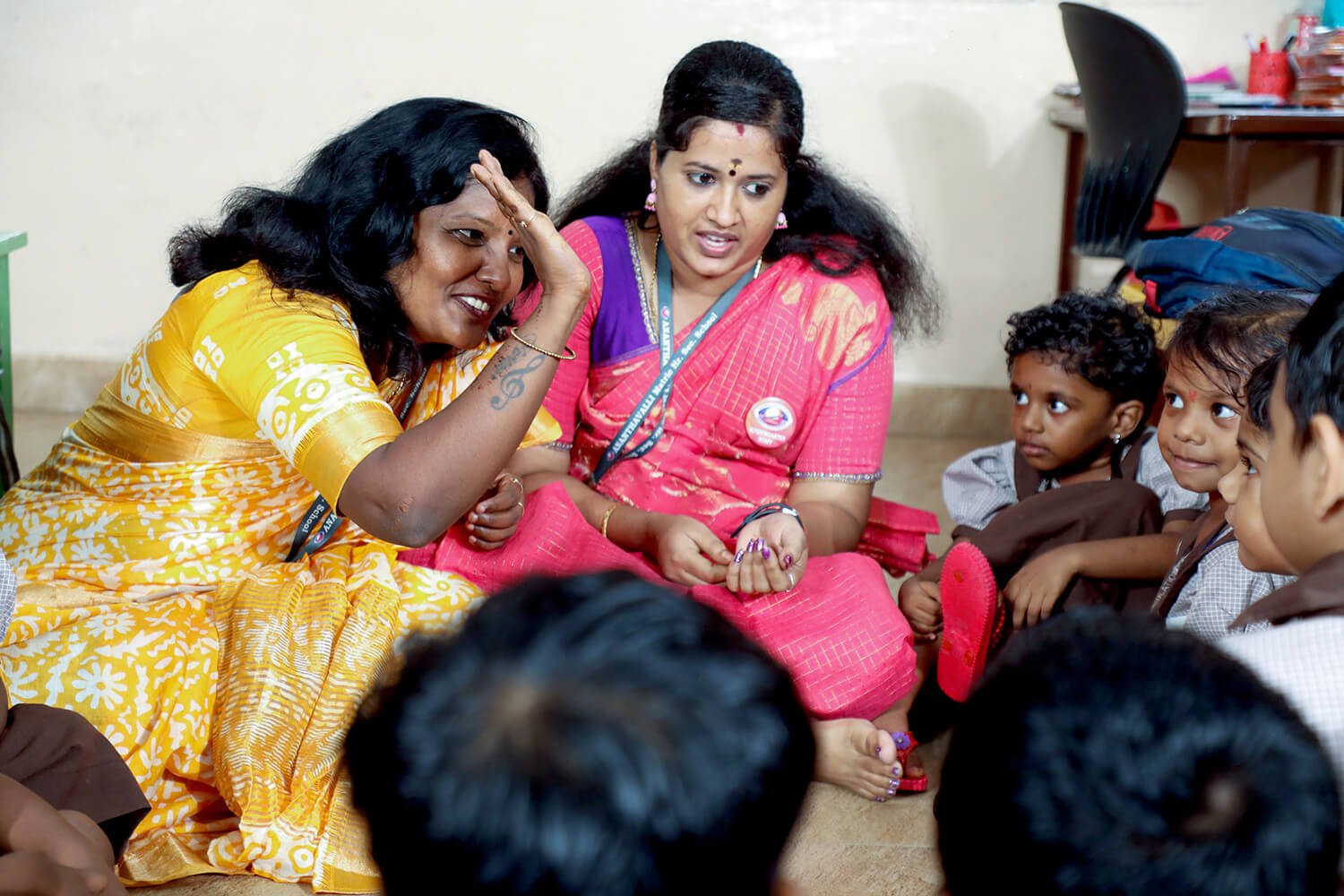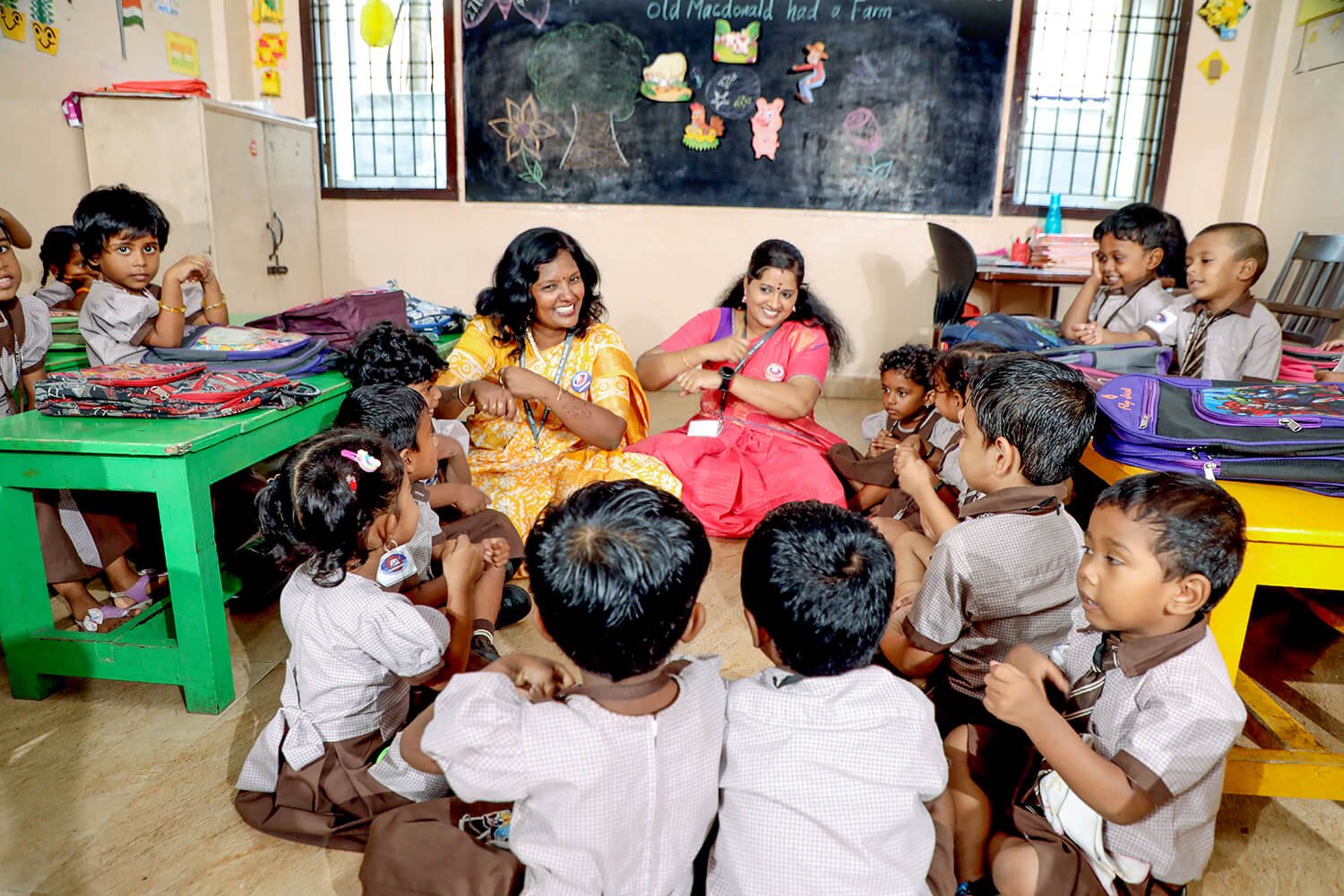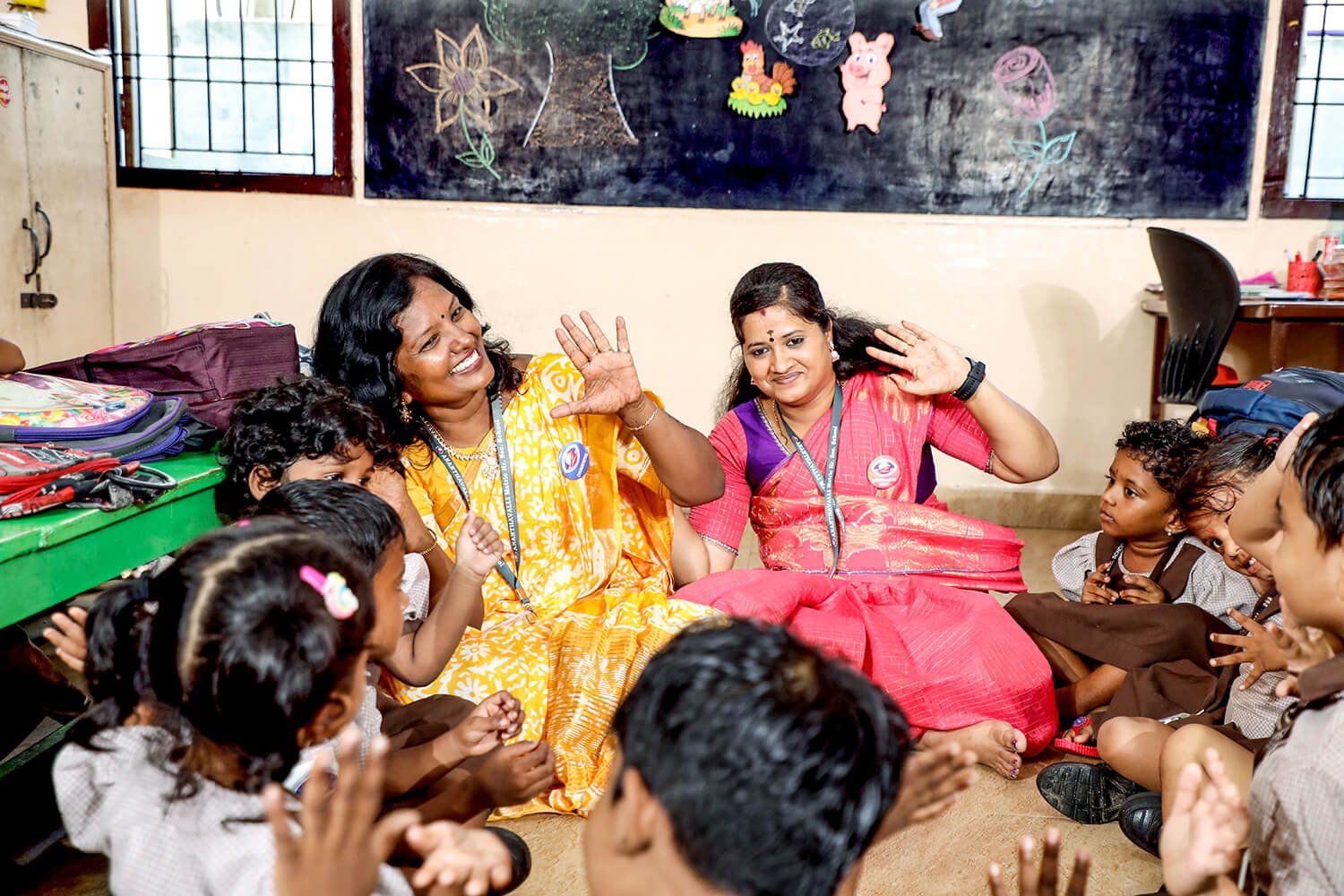Primary School
The primary department teaching methodology often varies based on the academic level and subject matter. In elementary education, emphasis is typically placed on interactive and experiential learning to engage young minds. Teachers often employ hands-on activities, group projects, and visual aids to foster a dynamic learning environment that caters to diverse learning . Additionally, technology integration and flipped classrooms may play a role, offering students opportunities for independent thinking. The overarching goal is to prepare students with not only a solid knowledge foundation but also the ability to think critically, solve problems, and adapt to an ever-evolving educational landscape.
Teaching rhymes is more than just musical fun in primary classes ; it's a powerful tool for early childhood development. Rhymes enhance language skills, promoting vocabulary, phonemic awareness, and pronunciation. The rhythmic patterns aid memory and cognitive abilities, laying a strong foundation for literacy. rhyming fosters creativity, boosts confidence, and nurtures social skills through group participation. So, in those joyful verses, children discover not just the magic of words but also a pathway to holistic growth and learning.
Teaching rhymes is more than just musical fun in primary classes ; it's a powerful tool for early childhood development. Rhymes enhance language skills, promoting vocabulary, phonemic awareness, and pronunciation. The rhythmic patterns aid memory and cognitive abilities, laying a strong foundation for literacy. rhyming fosters creativity, boosts confidence, and nurtures social skills through group participation. So, in those joyful verses, children discover not just the magic of words but also a pathway to holistic growth and learning.




